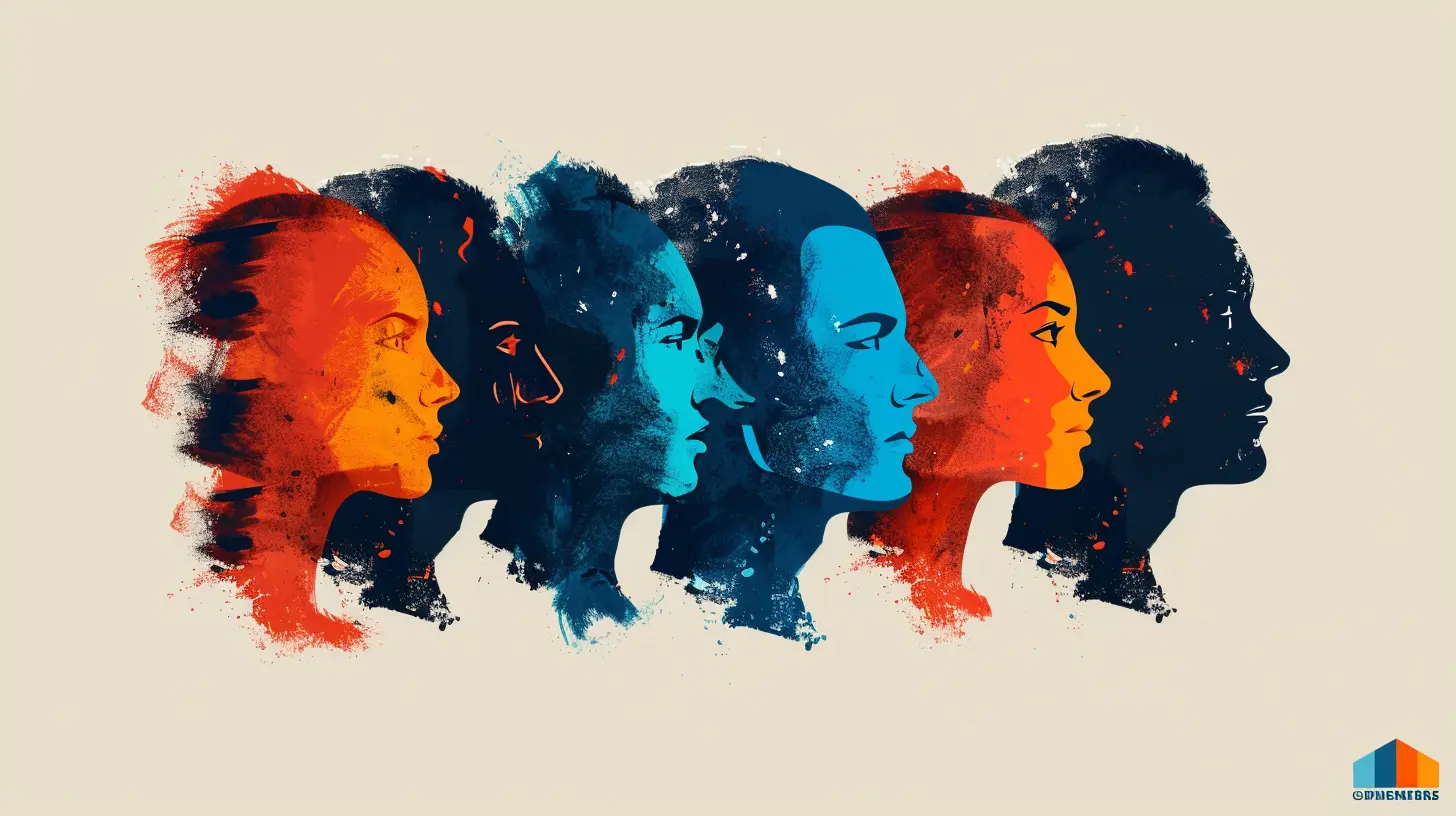Why We Conform: A Deep Dive into Social Pressures and Compliance
6 September 2025
Have you ever agreed with a group, even when you knew they were wrong? Maybe you've dressed a certain way or changed your opinion just to fit in. We all do it—it's called conformity, and it's a powerful force that shapes our thoughts, behaviors, and even identities.
But why do we conform? Is it just about peer pressure, or is there something deeper at play? In this article, we’ll break down the psychology behind conformity, the different types, and why resisting social pressure is easier said than done.

What Is Conformity?
At its core, conformity refers to the act of changing our beliefs or behaviors to match those of a group. Whether it’s following fashion trends, adapting to workplace norms, or agreeing with friends to avoid conflict, social influence is everywhere.Psychologists have long studied why people conform, and the results are fascinating. Sometimes, we conform to gain approval. Other times, we do it simply because we believe the group knows better than we do. Either way, our desire for acceptance and security plays a huge role. 
The Psychology Behind Why We Conform
So, what exactly makes us so eager to blend in? Psychological research sheds light on three main reasons:1. Normative Social Influence (Fear of Rejection)
Nobody wants to be the odd one out. Normative social influence happens when we conform because we want to be accepted and avoid embarrassment. Imagine standing in an elevator facing the wrong way. If everyone else is turned toward the doors, you'd likely feel pressure to turn around, too—even if it feels ridiculous.Studies have shown that people will agree with a group’s incorrect answer just to avoid sticking out. Social approval is a powerful motivator, and the fear of rejection often outweighs our need to be "right."
2. Informational Social Influence (Seeking Knowledge)
Sometimes, we conform because we genuinely believe others have more knowledge than we do. Think about the last time you were in an unfamiliar situation—maybe ordering food in a foreign country or reacting to a fire alarm in a crowded building. In such cases, we look to others for guidance.This type of conformity is common in uncertain situations. We assume that the group knows best, so we follow their lead, even if it goes against our instincts.
3. Obedience to Authority
While conformity usually involves fitting in with a group, obedience is about following orders—especially from authority figures. Famous psychologist Stanley Milgram conducted an experiment in the 1960s that demonstrated just how far people will go under the influence of authority. Participants were willing to administer painful electric shocks to others simply because they were instructed to do so.This kind of blind obedience shows how power and authority can override personal morals, making us conform even when we know something is wrong. 
The Different Types of Conformity
Not all conformity is the same. Psychologists have identified three distinct types:1. Compliance (Going Along to Get Along)
Compliance happens when we publicly agree with a group while secretly disagreeing. Imagine laughing at a joke you don’t find funny just because everyone else is laughing. You don’t actually believe the joke was hilarious, but you go along with it to fit in.This type of conformity is often driven by the fear of standing out or offending others.
2. Identification (Adopting a Group’s Identity)
Identification goes a step further than compliance. Here, we adopt the behaviors, beliefs, and attitudes of a group because we want to be part of it. This happens a lot in social circles, workplaces, and even relationships.For instance, when people join the military, they often adopt the values, language, and discipline of the organization. They conform not just outwardly but internally as well.
3. Internalization (Deep Belief Change)
This is the strongest form of conformity because it leads to a permanent change in belief. When we internalize an idea, we adopt it as our own, regardless of whether the group is present.For example, if someone grows up in a family that values charity and kindness, they might internalize those beliefs and continue practicing them even when they move away from home. 
The Role of Social Media in Conformity
Social media has amplified conformity like never before. Ever notice how certain challenges, fashion trends, or opinions spread like wildfire? Platforms like Instagram, TikTok, and Twitter shape our perceptions of what’s "normal" or "acceptable."Likes, retweets, and comments serve as social validation, making people more likely to conform to popular opinions—even if they wouldn't agree in private. The fear of missing out (FOMO) adds to this pressure, pushing individuals to jump on every new trend.
The result? A digital world where standing out feels risky, and blending in feels safe.
Why Do Some People Resist Conformity?
If conformity is such a natural instinct, why do some people resist it? Certain personality traits and environmental factors can make people more likely to stand up against social pressure:✔ High Self-Esteem – People with strong self-confidence are less concerned about others' opinions.
✔ Independent Thinking – Critical thinkers question norms instead of blindly following them.
✔ Supportive Social Circles – When surrounded by like-minded individuals, it’s easier to resist pressure.
✔ Moral Convictions – Strong beliefs or values can outweigh the desire to conform.
However, resisting conformity comes at a cost. Nonconformists often face criticism, rejection, or even social exclusion. That’s why standing up for one’s beliefs requires courage.
The Dark Side of Conformity
While conformity has its benefits—like creating social harmony and order—it also comes with risks. Some of the darkest moments in history, from war crimes to discrimination, were fueled by blind conformity.Think about the Holocaust or the Stanford Prison Experiment—both demonstrated how easily people conform to dangerous ideologies when influenced by authority or peer pressure.
This is why questioning norms, thinking independently, and staying true to one's values are crucial. Blindly following the crowd isn’t always the best path.
Can We Ever Escape Conformity?
The truth is, complete independence from social influence is nearly impossible. From childhood, we’re shaped by the values and expectations of our environment. But that doesn’t mean we have to blindly conform.The key is self-awareness. When we recognize when and why we're conforming, we can make conscious choices. Is this belief truly mine, or am I just following the crowd? Do I agree with this, or am I afraid of standing out? Asking these questions allows us to think for ourselves—and that’s the first step towards authentic living.
Final Thoughts
Conformity is a deeply human instinct, woven into our social fabric. It helps us connect, build relationships, and navigate society. But when taken too far, it can strip us of individuality and even lead to destructive behaviors.The challenge? Finding a balance—blending in when necessary but standing firm when it matters most.
So, next time you feel the pull of social pressure, take a moment to pause. Ask yourself: Am I choosing this, or is this choice being made for me? That simple reflection can be the key to breaking free from mindless conformity.
all images in this post were generated using AI tools
Category:
Social PsychologyAuthor:

Gloria McVicar
Discussion
rate this article
1 comments
Winter Gibson
This article effectively highlights the complexities of conformity and the subtle social pressures that drive us. It prompts reflection on our own behaviors and the importance of balancing authenticity with social acceptance. Thought-provoking read!
September 30, 2025 at 2:49 AM

Gloria McVicar
Thank you for your insightful comment! I'm glad you found the article thought-provoking and relevant to our understanding of conformity.


